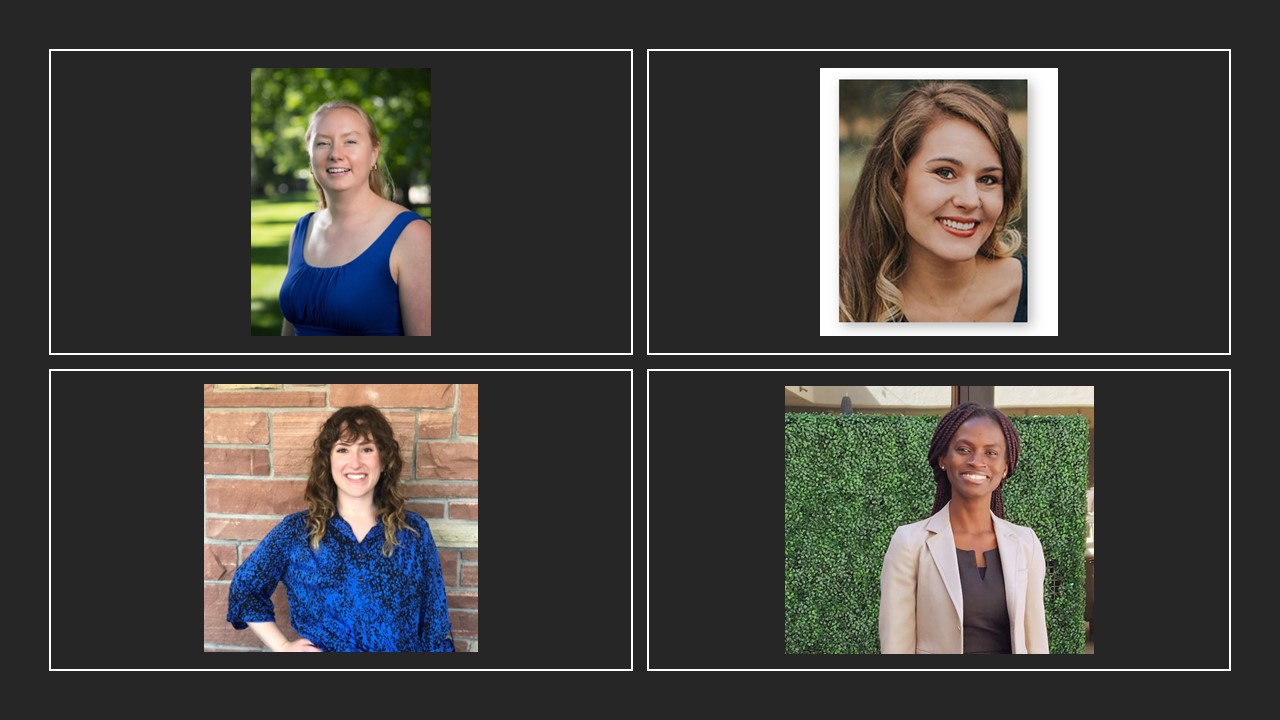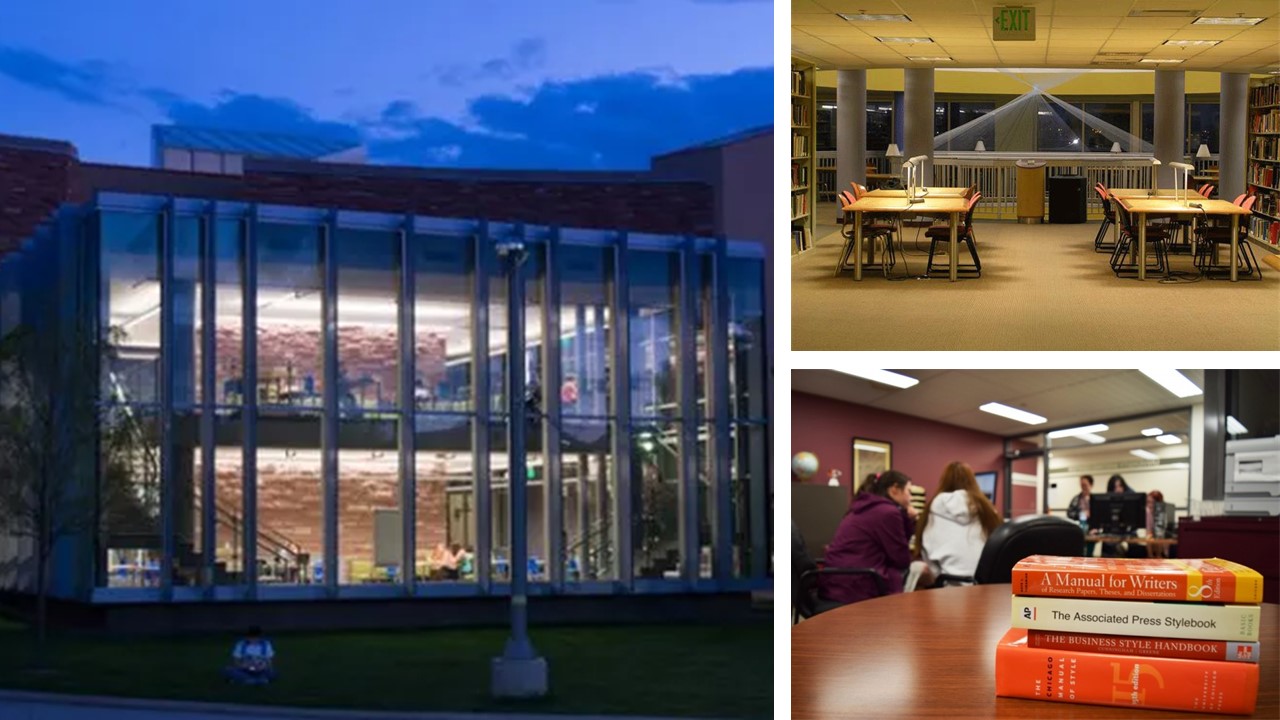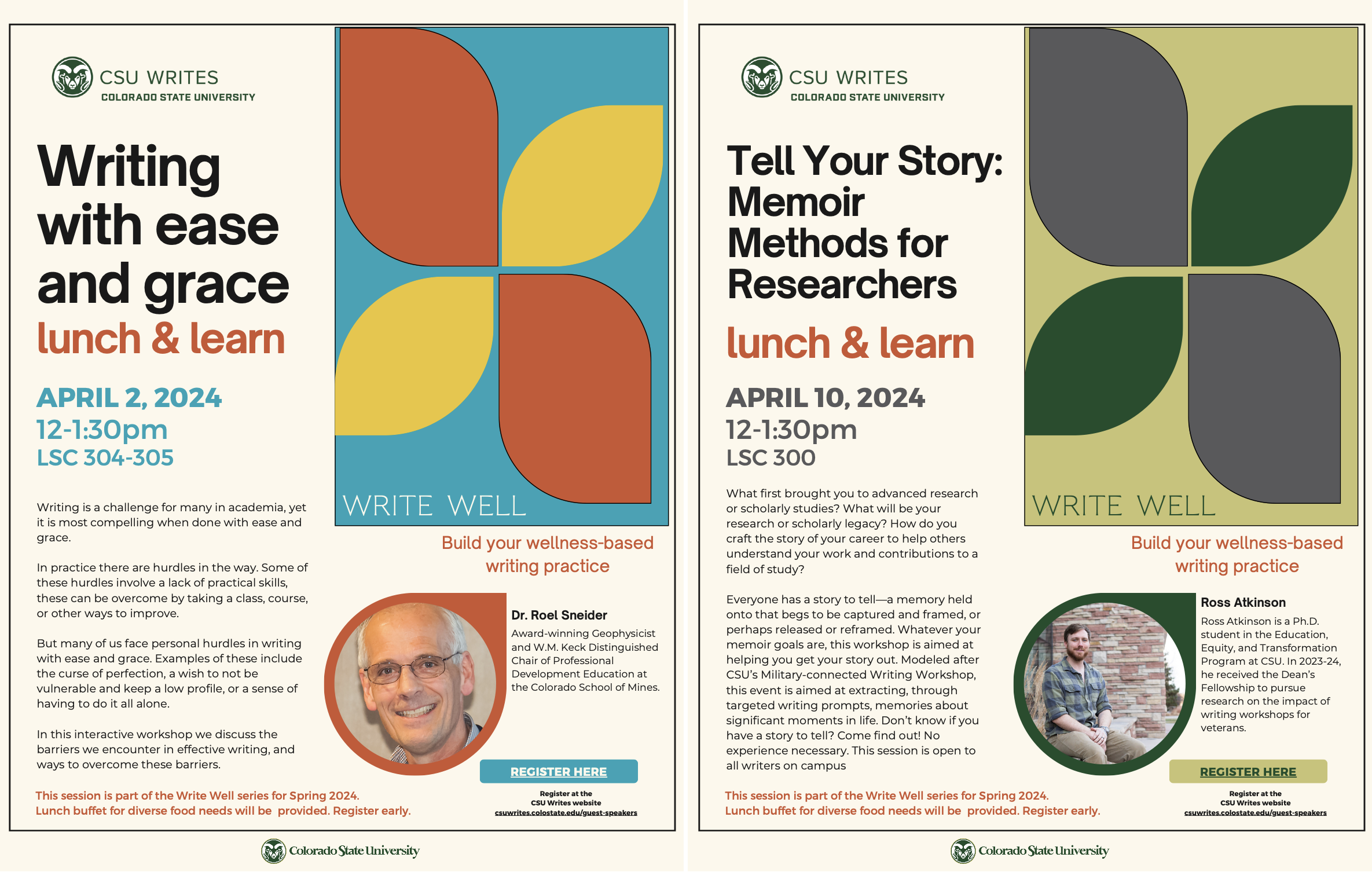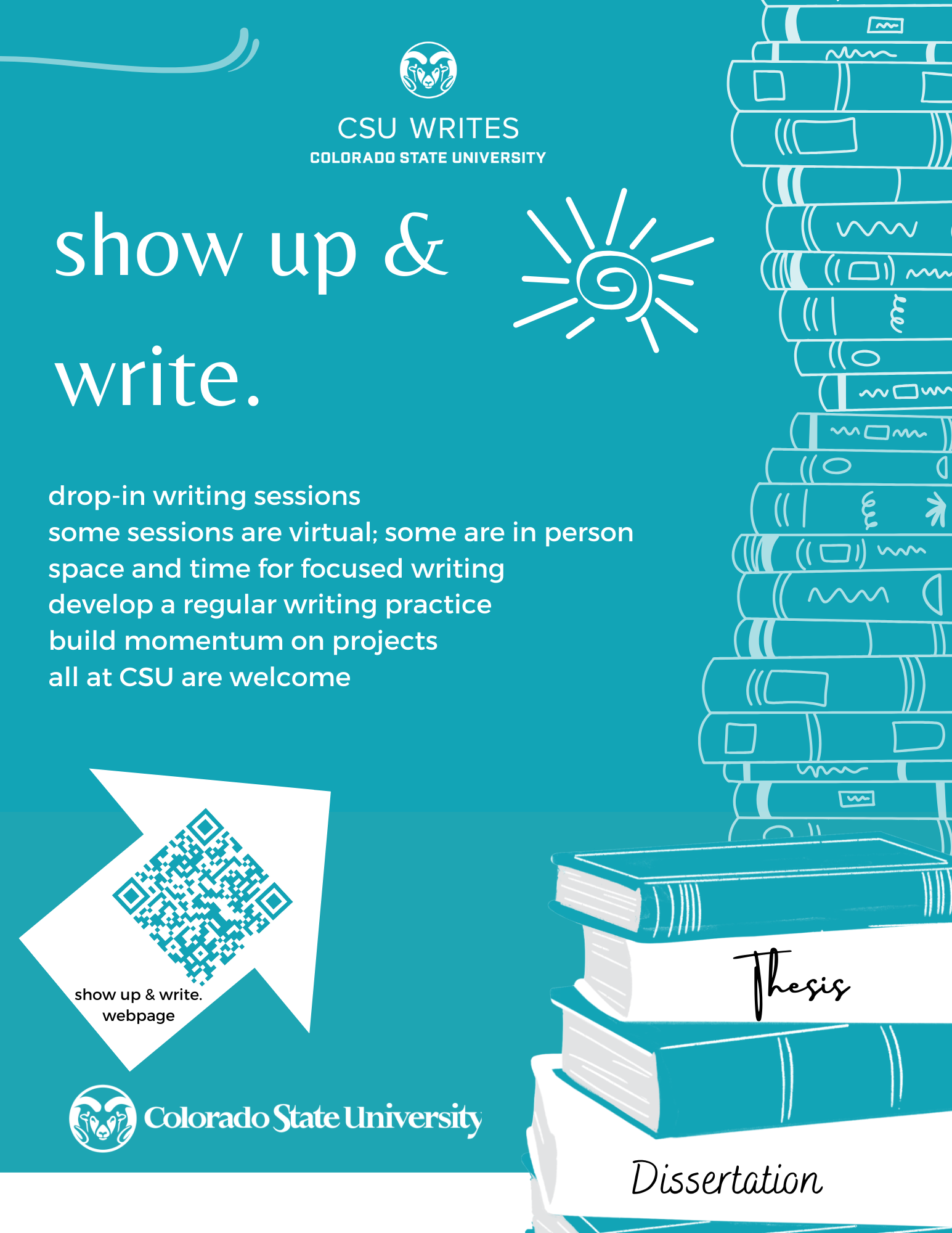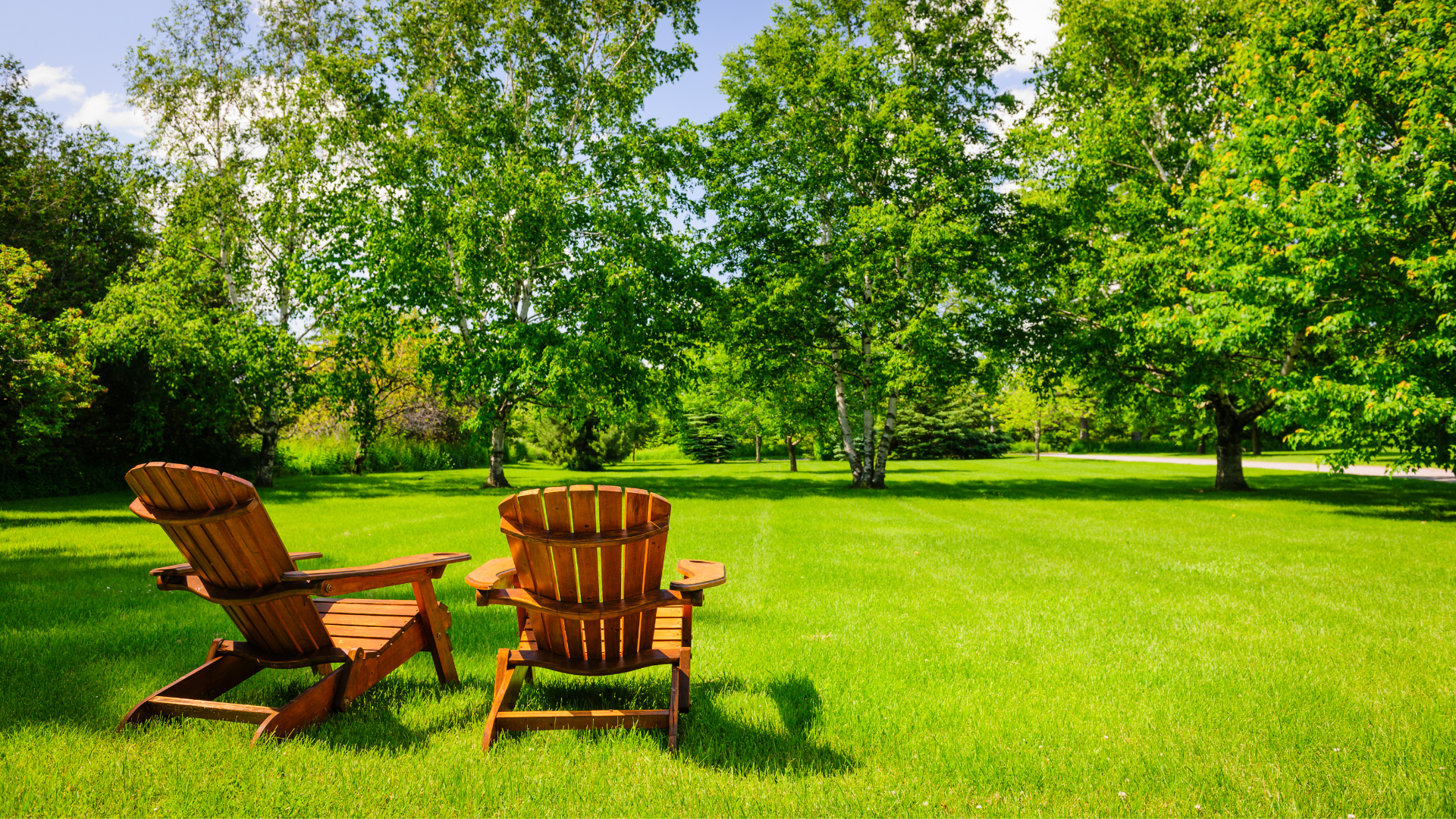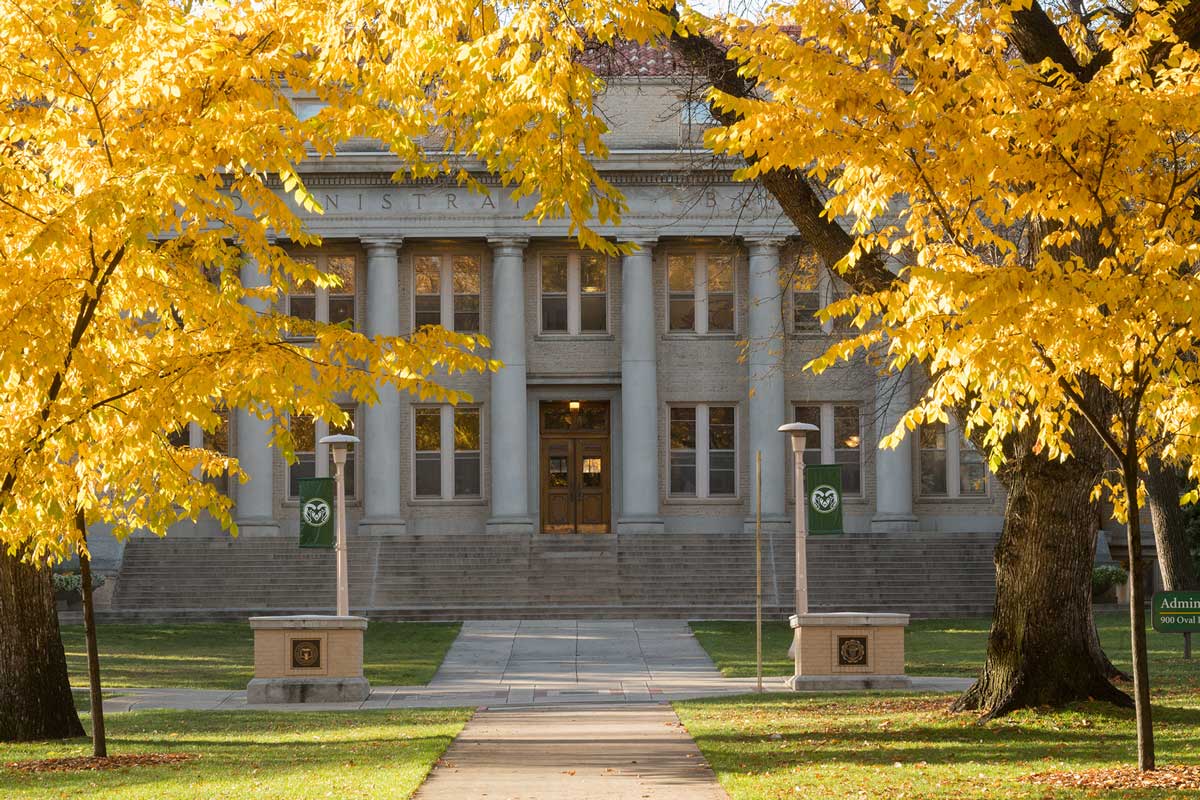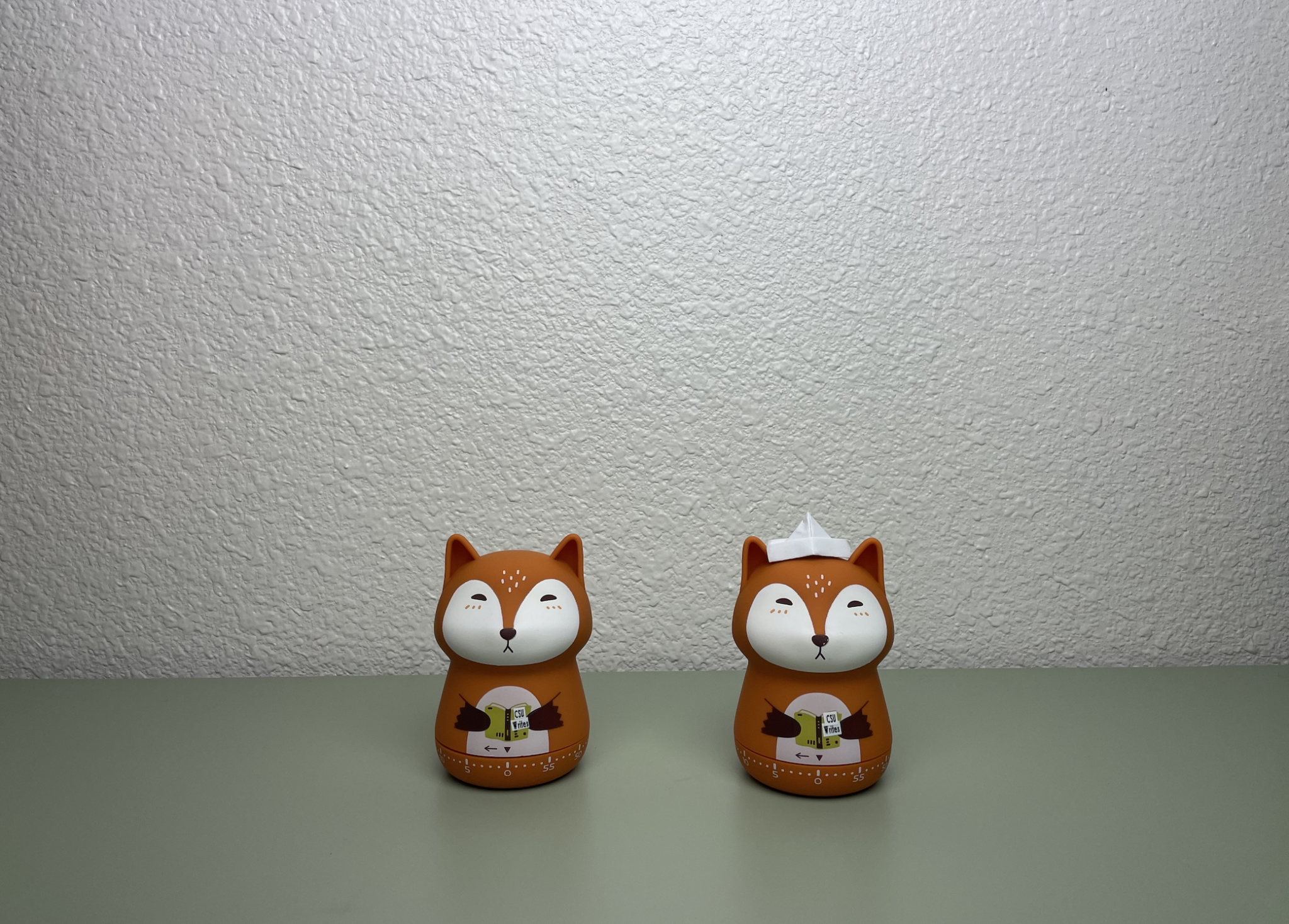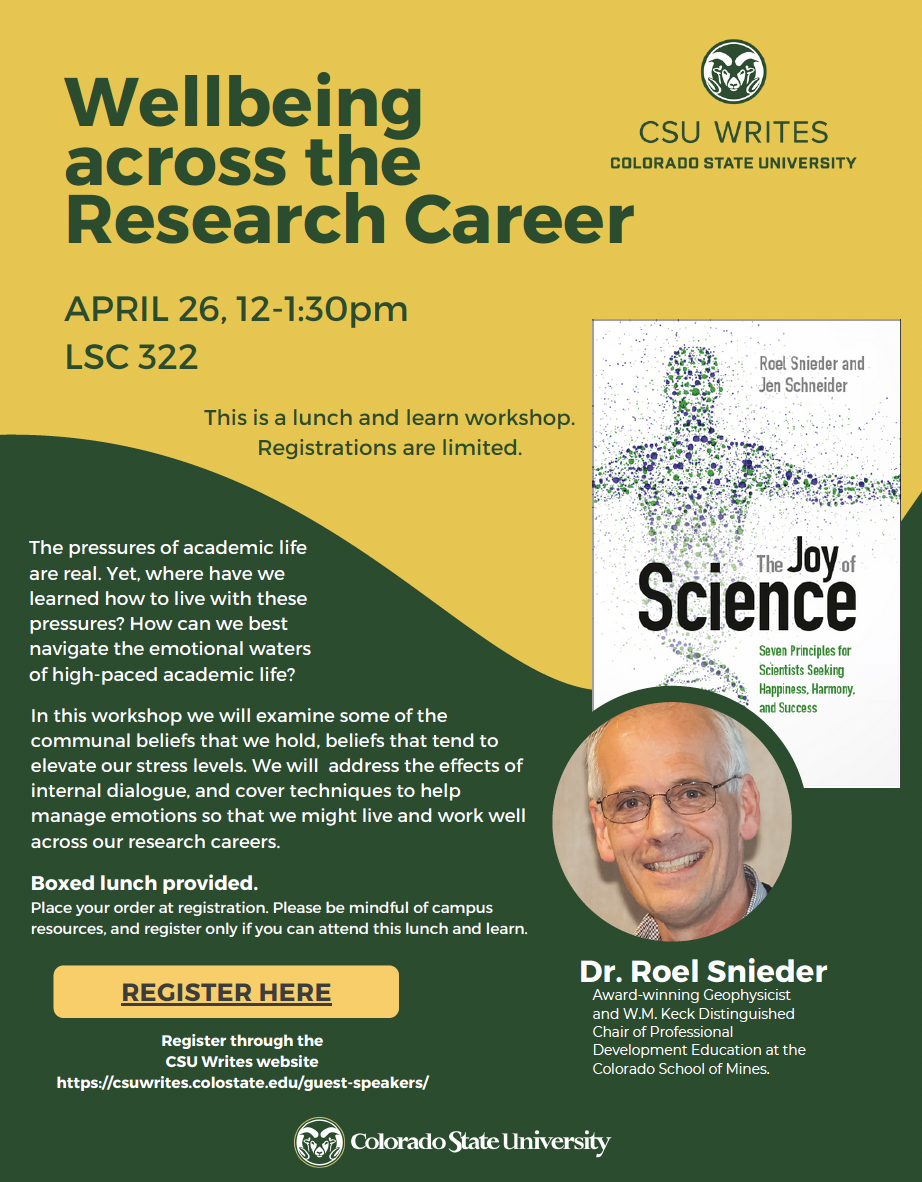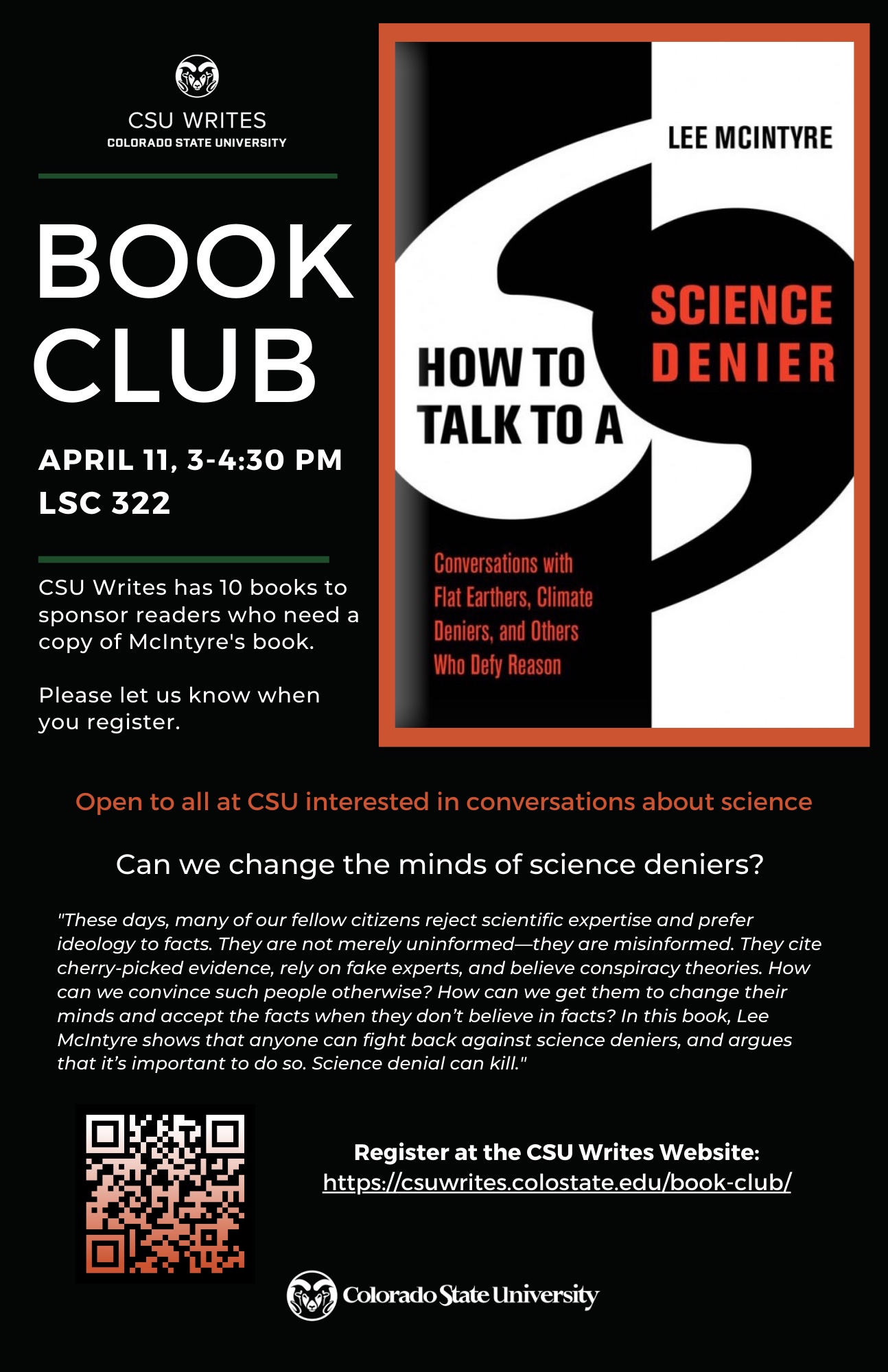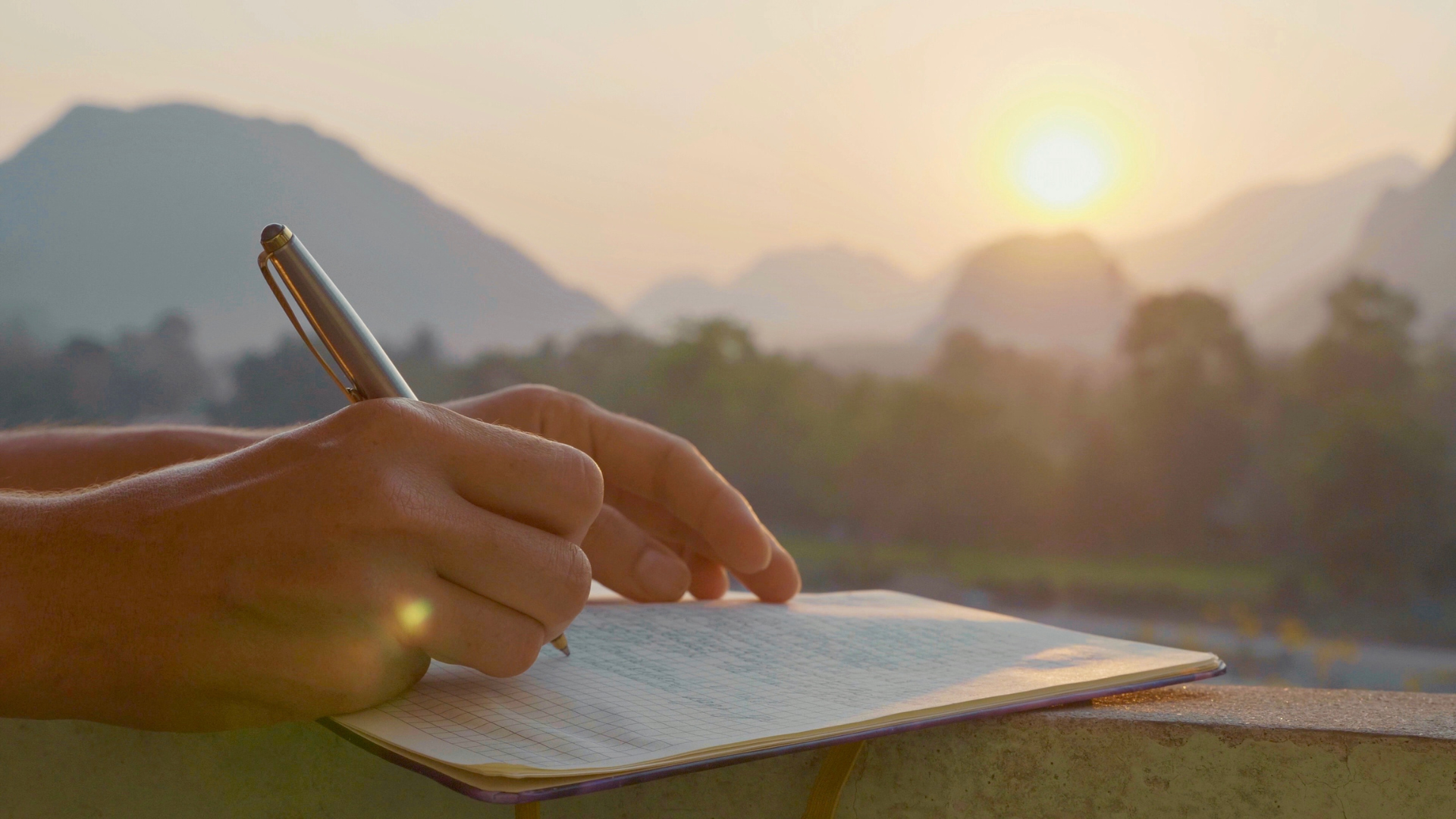CSU Writes is happy to introduce our Spring 2024 interns. These interns assist Dr. Kristina Quynn, the director of CSU Writes, to coordinate researchers and scholars from dozens of disciplines to support their writing productivity and craft. CSU Writes interns are effective behind-the-scenes facilitators who drive the program forward. This year’s group reflect a diversity of backgrounds, programs, and projects:
- Conor McMahon is from the Biological Chemical Engineering department and serves as the data intern.
- Hana Gatlawi is from the Microbiology, immunology, Pathology department and serves as the facilitator for show up & write.
- Kimi Conro runs CSU Writes data group and teams and is from Journalism and Media Communications department.
- Lindsey Bush is from the School of Education and serves as the Writing Accountability for Research Projects (WARP) Coordinator.
- Nancy Achiaa Frimpong is the Communication intern and is from Communication Studies department.
- Riana Slyter is from the Communication Studies department and is the intern in charge of Special Data Project Program Analysis.
You can read about our fabulous interns on the CSU Writes “People” page: https://csuwrites.colostate.edu/people/ .
The internships are paid and are designed for graduate students; although, we have also had postdoctoral fellows join the CSU Writes team. The intern program is competitive, with a number of applicants for each position. The program is designed to be mutually beneficial and encourages interns to draw from their own areas of interest or expertise to contribute to the CSU Writes program.
If you are a graduate student who is interested in applying for a paid internship, you can look for announcements in late summer via the Graduate School and on Handshake. You can also reach out to CSU Writes for information at csuwrites@colostate.edu and see the CSU Writes https://csuwrites.colostate.edu.
